What Is Jailbreaking an iPhone & Is Jailbreaking Safe?
Is jailbreaking legal? Is Jailbreaking worth it? Let’s find out the answers of these burning questions!
You’ve likely heard your friends brag about the cool benefits they got after jailbreaking an iPhone. Now, you’re also curious to know what it means to jailbreak an iPhone and whether it’s a safe option. In this article, we will cover the motivating factors behind jailbreaking and its legal and security aspects.
What Is Jailbreaking?
Jailbreaking means making unauthorized changes in a device’s default settings without the manufacturer’s permission.
When people find any product’s default mechanism restricting, they jailbreak the device using some tools. These tools are designed to exploit the vulnerabilities (bugs) of the device’s mechanism and operating system to tweak the default settings. By removing restrictions, you gain administrative access to your device to make the root level changes.
The term Jailbreaking is popular for iPhones. But any device can be jailbroken. For example,
- Android Phone (it’s called Rooting)
- PC, Laptop (MAC and Windows)
- Tablet (iPad and Windows)
- Smart Watch
- Smart Television
- Firestick
- Kindle
- Roku streaming box
- Nintendo Switch
Warning: Jailbreaking an iPhone Voids Your Warranty
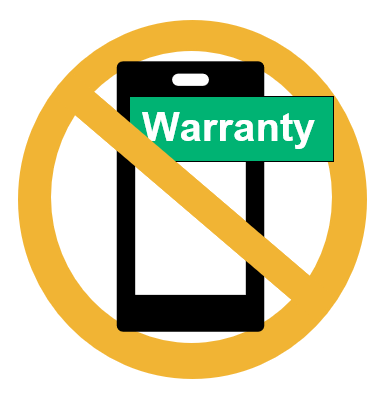
We want to give heads up. If you think that you can jailbreak an iPhone without any ramifications, guess again. Apple is very clear that jailbreaking voids your iPhone’s warranty.
Apple strongly cautions against installing any software that hacks iOS. It is also important to note that unauthorized modification of iOS is a violation of the iOS end-user software license agreement and because of this, Apple may deny service for an iPhone, iPad, or iPod touch that has installed any unauthorized software.”
If that doesn’t bother you, then keep reading. We’ll not only talk about the advantages of jailbreaking an iPhone, but we’ll also cover the security issues and legal aspects of doing so.
What Does Jailbreaking an iPhone Do?
These are the benefits of jailbreaking an iPhone.
1) Install Unauthorized Apps via Jailbroken iPhones
iOS has strict policies and rigorous verification processes to let an application display on Apple’s app store. That’s why many apps available on android phones are not available on iPhones. People jailbreak their iPhones to get access to such otherwise unavailable apps.
2) Unlock Your Phone
A locked phone means you can’t change the device’s carrier or cellular network provider forever or until the contract ends.
When people aren’t happy with their service providers (due to network issues, high rates, etc.), they jailbreak their phones to get rid of the default service providers. People also jailbreak their phones if they are moving to a different location or changing the country, and their carrier doesn’t provide the service in the new geographical location.
However, it’s important to note that there may be some legal risks involved in jailbreaking an iPhone if you are leasing it. For example, if you’re paying for your device in monthly installments, jailbreaking may result in legal penalties or affect your credit score.
3) iOS Jailbreak Facilitates the Software Piracy
Many apps require paid membership to view videos, download songs, or access advanced features. To gain these privileges without forking over money, some people choose to use pirated (illegal) versions of these apps. However, Apple doesn’t allow pirated software in their App Store. Hence, some people jailbreak iPhones to install the pirated versions of the apps.
There are some apps that run their own stores to exploit Apple’s Developer Enterprise Program. The enterprise program allows organizations to install enterprise certificates, which enables them to develop and distribute apps for internal usage.
Be sure to check the legal consequences of using a pirated app and software in your state because piracy falls under The U.S. Copyright Act.
4) Jailbreaking iPhones to Facilitate Mobile Tethering
Mobile tethering, which is also known as the mobile hotspot, is a feature that allows you to share your mobile’s internet data with other devices. Some service providers felt that people are exploiting their “unlimited data plan” with hotspot facility and overusing the internet. That’s why those providers have added extra charges to enable the mobile hotspot capabilities on their iPhones. However, some users jailbreak iPhones to activate their mobile hotspots to avoid paying those extra fees.
5) Customize Your iPhone Settings
iPhones have some in-built settings that you can’t change. For example, when you click any link, it opens up in the Safari web-browser only. This means you can’t set Google Chrome or Mozilla Firefox as your default browser.
In the same way, if you want to use any ringtone other than provided by Apple, you must buy it from Apple’s sound store. You can’t simply download any ringtone from internet or crop any song and use it as ringtone for free.
But when you jailbreak an iPhone, you can change all such default settings and customize your phone with the features you want.
Is Jailbreaking Safe?
The short answer is NO! Jailbreaking an iPhone is highly risky to the security of your device and data.
The following are the risks of jailbreaking an iPhone.
1. Risks of Jailbreaking an iPhone on the Functionality Level
The software and tools that you’d need to use to jailbreak your device can:
- Shorten the device’s battery life,
- Cause your device to crash,
- Freeze other apps,
- Drop calls,
- Disrupt Apple’s other services (like iCloud, iMessage, FaceTime, Apple Pay, Visual Voicemail, Weather, and Stocks), and
- Damage the iOS in a way that it no longer supports operating system updates.
2. Data Theft and Unauthorized Usage
To access all the jailbreaking components, you grant permission to the jailbreaking software developers to access your phone’s email contacts, photo galleries, text messages, documents, etc.
But giving unknown entities this type of access isn’t without risk. This level of access enables the app/software developers to intercept and steal sensitive data, which they could use to carry out a series of crimes, including:
- Ransomware attacks,
- Phishing scams,
- Identity theft, or
- Financial fraud. They can also sell the data to the marketers or cybercriminals in the dark market.
Example: A malware named KeyRaider stole 225,000 valid Apple accounts and thousands of certificates, private keys, and purchasing receipts from the jailbroken iPhones.
When you allow those apps to access your email client or social media profiles, the app developer can send posts from your social media profiles or send phishing emails to your contacts. These posts/emails might be in advertisement format or contain malware or links that redirect user to spammy websites.
Hackers might also access apps such as banking, ecommerce, bill payments, etc. to do unauthorized transactions, money transfers, shopping, etc.
3. You May Inadvertently Install Malware on Your Device
Because alternative app stores don’t have strict criteria for listing apps, that makes it easy for hackers to list their malicious apps for users to download.
The jailbreaking software has already removed the security layer of your phone, so hackers can insert different types of malware (viruses, worms, trojan horses, rootkits, etc.) via infected apps. Malware can intercept, encrypt, delete, and transfer your data.
Many Free Apps Include Adware: Some app developers offer free apps and make money through advertisements. So many times, users are bombarded with tons of advertisements while they are accessing free stuff or pirated apps. Often, hackers piggyback on such apps to hide malware in their advertisements. This is known as malvertising.
Apple generally blocks the apps that are known for containing adware (showing unwanted popups) or malvertisements. But when such apps are freely listed on the alternative app stores, chances are high that you’ll accidently click on one of these malicious advertisements and will inadvertently infect your iPhone.
How Does Jailbreaking work?
There are three phases involved in jailbreaking an iPhone. In each phase, your phone’s security and privacy is compromised.
Phase 1: Jailbreaking Software Installation
When you download jailbreaking software (based on your device’s type and operating system), it eliminates the iOS’s default security layers, making it vulnerable to:
- Hacking and malware insertion
- Network attacks
- Eavesdropping and personal information theft.
Phase 2: Alternative App Store
When you download alternative app stores, they ask your permission to download the enterprise certificates on your iPhone. Because the enterprise program is made for the organization’s internal usage, it gives the developer direct access to some of your iPhone’s data and features.
Phase 3: Downloading Banned Apps
Now, you can download many apps from these alternative app stores, including those apps which are not accessible on iPhone’s official app store. The important question is, why Apple has banned or rejected those apps on the first place? Apple generally rejects or bans apps that:
- Contain malware,
- Are pirated,
- Contain adware and malvertizing,
- Use deceptive names to misguide users,
- Have weak security postures or security loopholes that hackers can easily exploit,
- Have histories of hacking users’ devices or misusing data, or
- Possess any kind of security risk.
In short, when Apple sees an app as a security threat to the users’ devices, it rejects or bans it. So, now, you’re taking a big risk by downloading the apps which Apple considers a severe security threat.
Is Jailbreaking Legal?
It is legal to jailbreak an iPhone in the United States. The legality of jailbreaking a device falls under the Digital Millennium Copyright Act (DMCA). Section 1201’s of DMCA has divided technological measures into two categories:
- Measures that prevent unauthorized access to a copyrighted work
- Measures that prevent the “copying” of a copyrighted work.
According to the act, “Making or selling devices or services that are used to circumvent either category of a technological measure is prohibited in certain circumstances.” However, jailbreaking a device is exempt from these criteria.
According to the U.S. Copyright Office’s Federal Register Notice Vol. 75, No. 143:
Turning to the second fair use factor, it is customary for operating systems – functional works – to enable third-party programs to interoperate with them. It does not and should not infringe any of the exclusive rights of the copyright owner to run an application program on a computer over the objections of the owner of the copyright in the computer’s operating system. Thus, if Apple sought to restrict the computer programs that could be run on its computers, there would be no basis for copyright law to assist Apple in protecting its restrictive business model.”
Jailbreaking isn’t all that new concept. iPhones were first released in 2007, and hackers began jailbreaking the Apple devices soon thereafter. And hackers recently came out with a new way to jailbreak any iPhone — including iOS 13.5 — although Apple was quick to patch the security vulnerability shortly afterward.
Final Words on Jailbreaking an iPhone
We all love customizing our devices, but is a new look or feature so necessary that we are ready to compromise the phone’s security posture? Is getting access to a pirated app really worth voiding your warranty or risking having your invaluable data or identity stolen?
When you weaken your phone’s security mechanism by allowing unknown apps, hackers can use it as a way to install malware on your device. Some types of malware are so advanced that even your phone’s antivirus and anti-malware programs can’t detect them. Plus, when you allow the jailbreaking software to install an enterprise certificate in your device, you are willingly giving the app developers permissions to access some features and data of your phone. Are you aware of the consequences of data theft?
Hence, before jailbreaking an iPhone, you should ask yourself, “is jailbreaking really worth it”? We hope this article will help you decide whether benefits of jailbreaking outweigh the safety and legal risks.
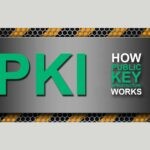





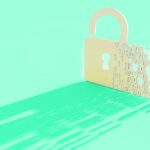

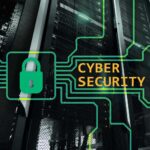





 (20 votes, average: 4.50 out of 5)
(20 votes, average: 4.50 out of 5)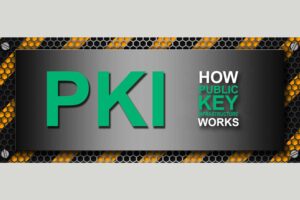
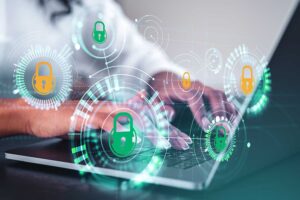
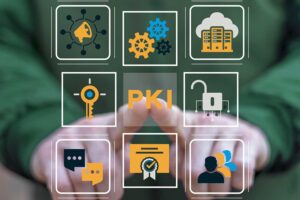
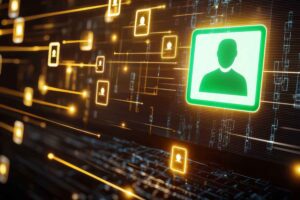

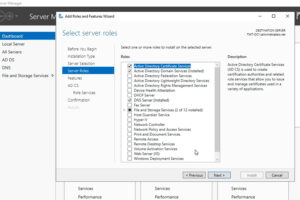

2018 Top 100 Ecommerce Retailers Benchmark Study
in Web Security5 Ridiculous (But Real) Reasons IoT Security is Critical
in IoTComodo CA is now Sectigo: FAQs
in SectigoStore8 Crucial Tips To Secure Your WordPress Website
in WordPress SecurityWhat is Always on SSL (AOSSL) and Why Do All Websites Need It?
in Encryption Web SecurityHow to Install SSL Certificates on WordPress: The Ultimate Migration Guide
in Encryption Web Security WordPress SecurityThe 7 Biggest Data Breaches of All Time
in Web SecurityHashing vs Encryption — The Big Players of the Cyber Security World
in EncryptionHow to Tell If a Website is Legit in 10 Easy Steps
in Web SecurityWhat Is OWASP? What Are the OWASP Top 10 Vulnerabilities?
in Web Security